Business Reporter
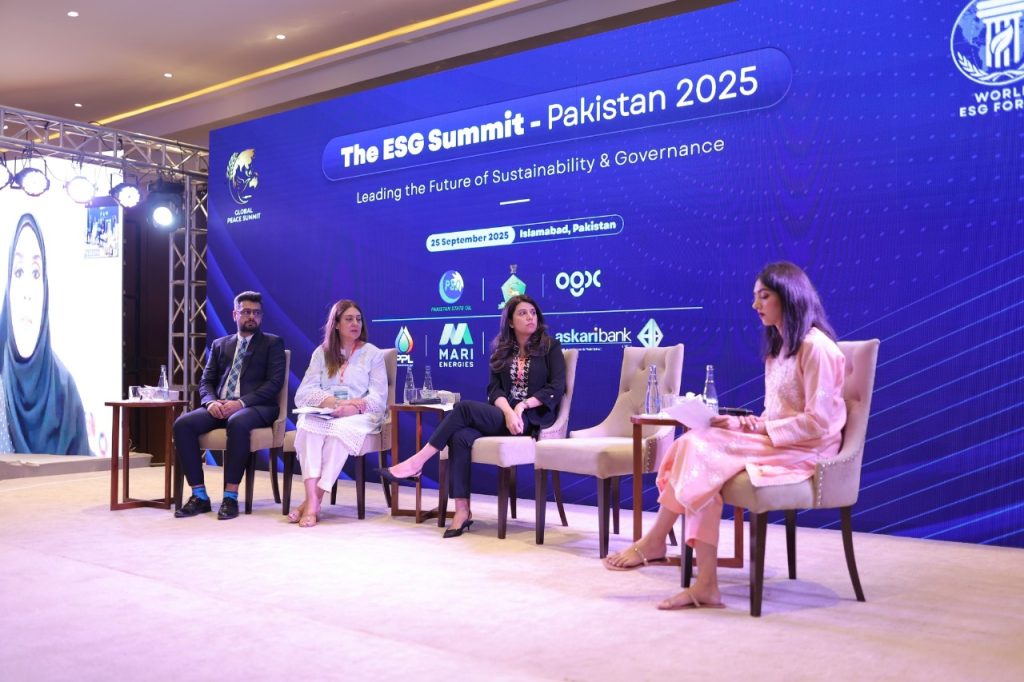
Islamabad: The ESG Summit Pakistan 2025 concluded in Islamabad on Wednesday with participants calling for urgent, measurable action on environmental, social and governance (ESG) reforms. Organized under the banner of the Global Peace Summit, the two-day gathering brought together senior regulators, business leaders, academics and civil society actors in what observers described as a rare convergence of sectors and stakes.
In his opening remarks, Global Peace Summit founder Shaikh Mahmud bin Ilas said delegates were gathered “not merely as representatives of business, government, or civil society, but as stewards of a shared future.” The Summit closed with a call to move from ambition to integrated implementation, embrace collaboration and transparency, and “measure what truly matters.”
Taxonomy and Governance
A major focus was the creation of a national ESG taxonomy to standardize disclosures and curb greenwashing. SECP’s Musarat Jabeen and SBP’s Faisal Shafaat stressed the need for uniform criteria and supervisory tools to push financial institutions toward climate risk integration. ACCA Pakistan’s Assad Hameed Khan and Deputy Auditor General Raheela Zahid underlined the importance of independent assurance, while Professor Muhammad Ayub of Riphah University urged phased thresholds tailored to Pakistan’s economy.
The panel, moderated by Shozab Majeed, outlined a consensus roadmap linking taxonomy development to green bonds, disclosure rules and auditor training.
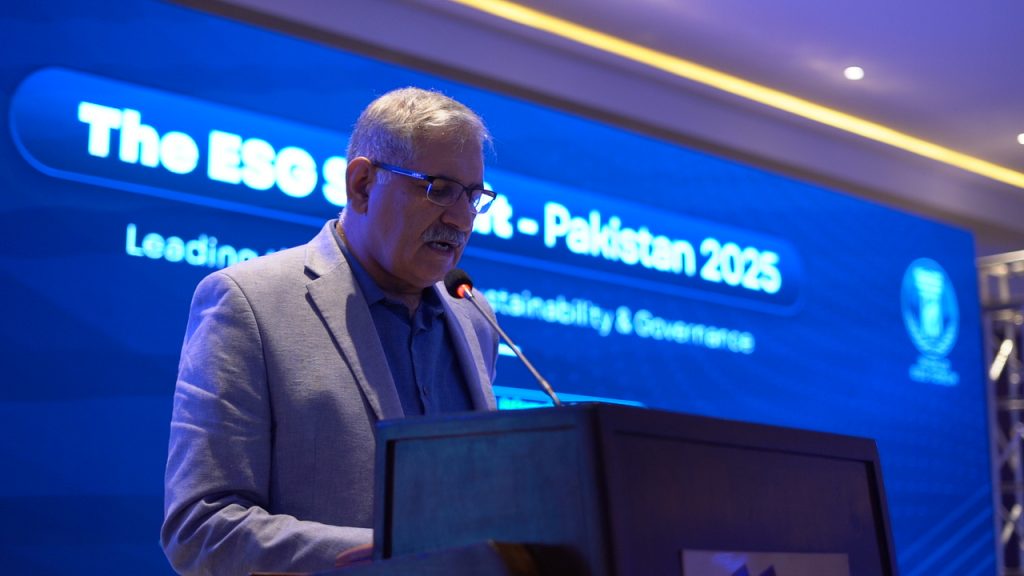
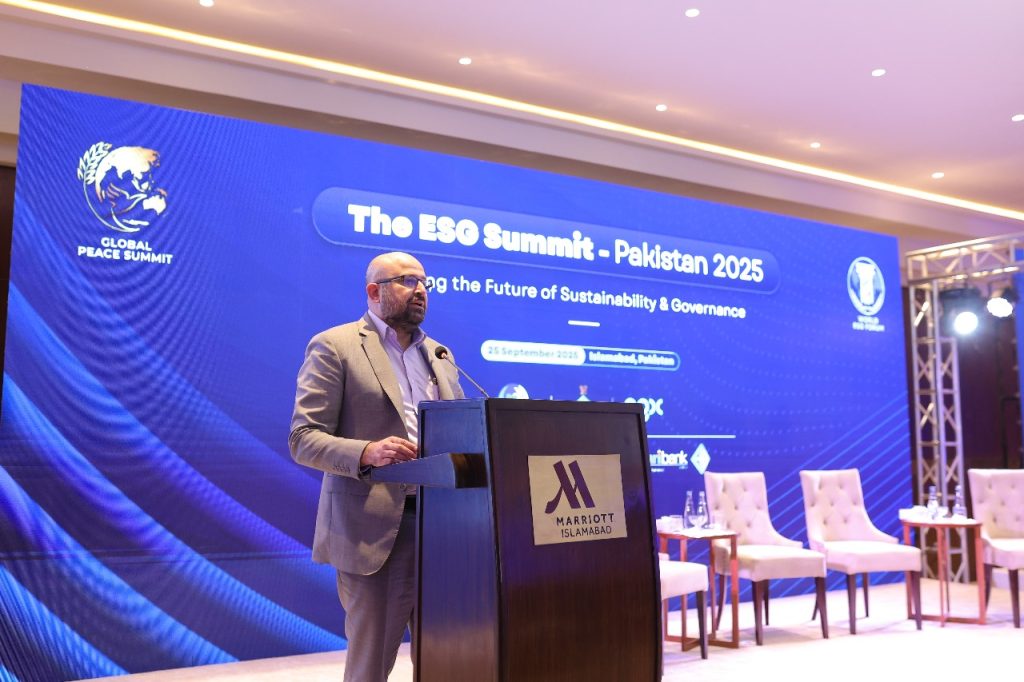
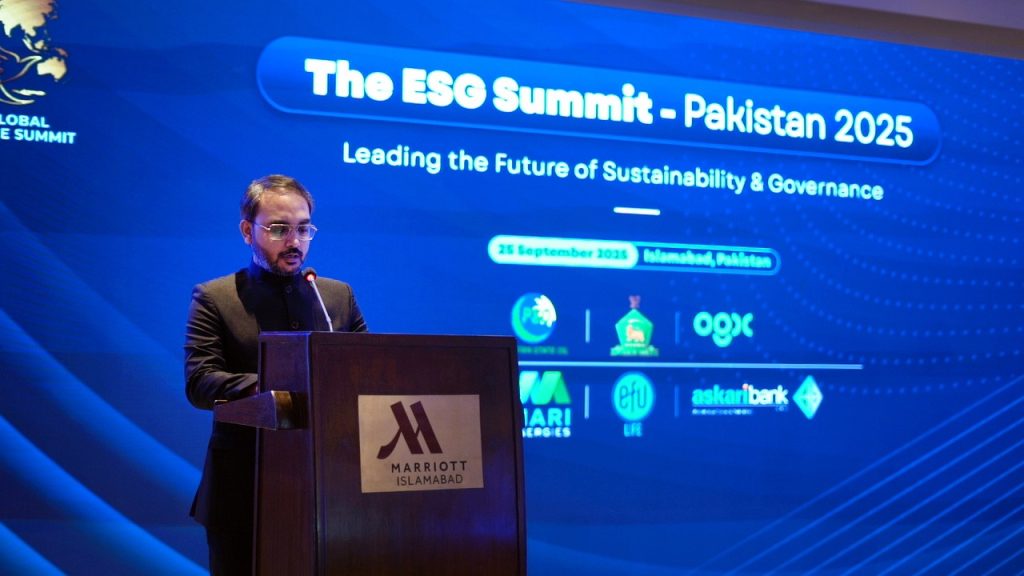
From Policy to Practice
Another session focused on industrial decarbonization. Farrukh Ahmed of Pakistan State Oil highlighted blended finance for costly retrofits, while OGDCL’s Shahzad Safdar stressed workforce transitions. Civil society voices, including GAIA’s Sumaira Khan and HCC London’s Fauzia Khan, called for community resilience projects and climate risk integration in investment appraisals. Legal expert Sarah Kazmi emphasized enforceable ESG-linked KPIs.
The panel recommended sector-specific roadmaps, fiscal incentives for green investments, and structured public-private partnerships.
Shariah-Compliant ESG Finance
Speakers including PSX advisor Syed Mazhar Abbas, AAOIFI’s Omar Mustafa Ansari, and Dr. Salman Shaikh of IIU Malaysia examined how Islamic finance can align with ESG principles. They proposed standardized screening methodologies, transparent governance for indices, and enabling regulations to scale Shariah-compliant green products.
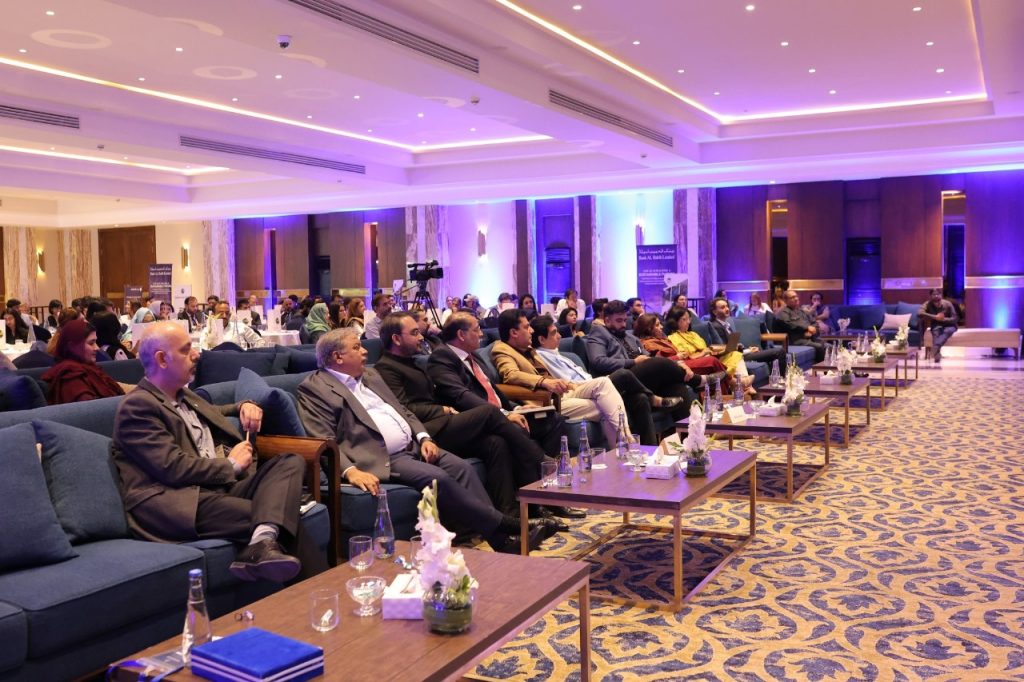
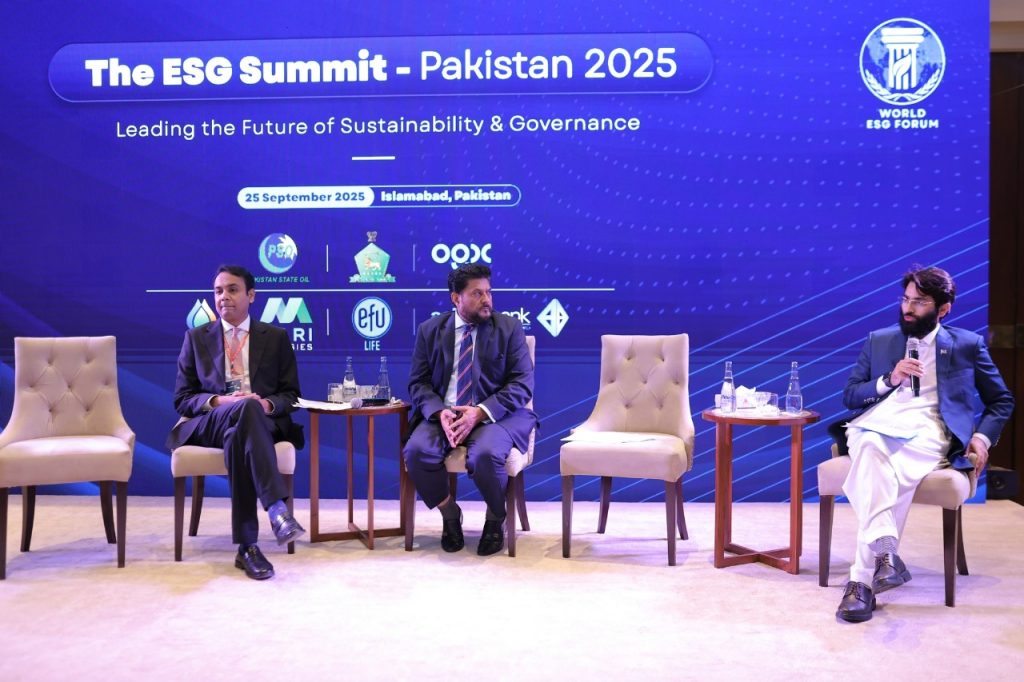
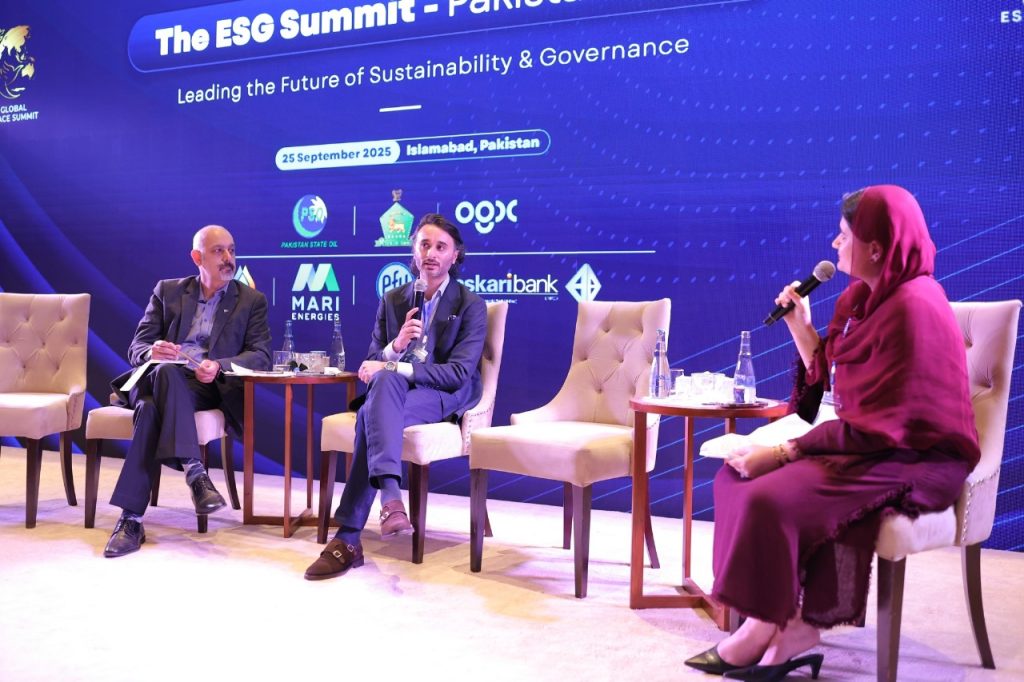
Technology and Data Integrity
With trust and data integrity at stake, the role of technology was underscored. Jazz’s Fahad Rehman, NEECA’s Syed Akbar Mahmood Shirazi, and SGS’s Raazia Anum discussed using telecom analytics, national benchmarking tools, and traceability mechanisms to strengthen disclosures. The panel, moderated by Zunaira Omar, advocated interoperable data platforms, blockchain traceability, and compliance training.
Keynotes and Outcomes
Strategic inputs came from NTDC Chairman Dr. Fiaz Chaudhry, who outlined energy grid decarbonization pathways, and SECP Commissioner Zeeshan Ahmed Khattak, who signaled phased timelines for ESG disclosure.
Common threads across sessions included:
- A national ESG taxonomy tied to disclosure standards and green bonds.
- Sector-specific climate roadmaps with standardized KPIs.
- Expansion of Shariah-compliant ESG finance products.
- Digital tools and independent assurance to combat greenwashing.
The Global Peace Summit pledged to consolidate the findings into a policy paper for SECP, SBP and relevant ministries.
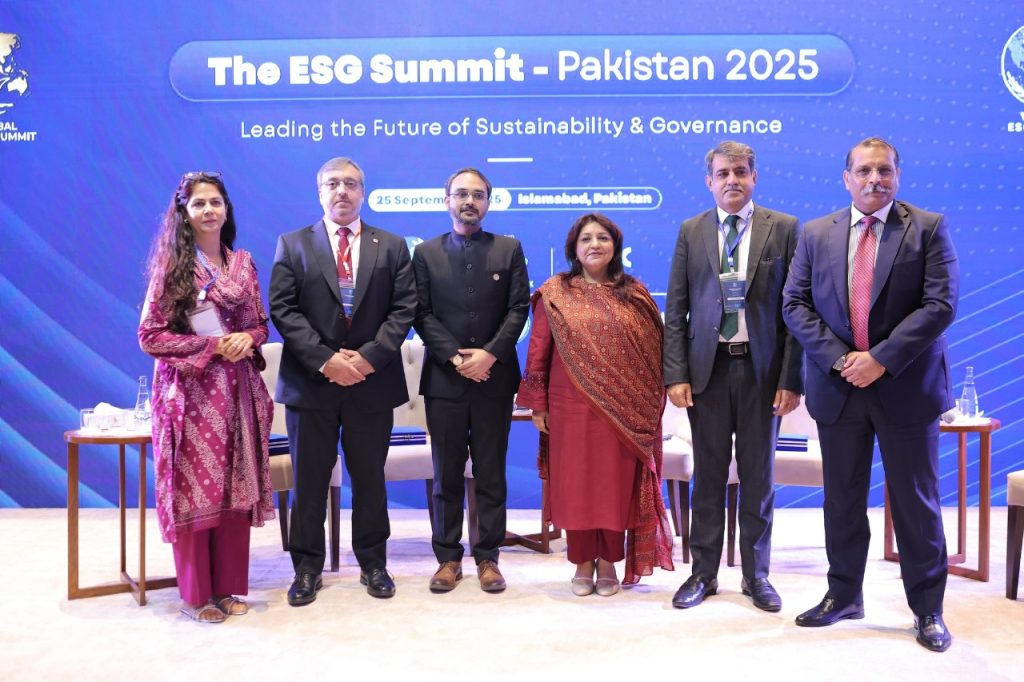
Partnerships and Support
The event drew strong corporate backing from Pakistan State Oil, OGDCL, Mari Energies, Askari Bank, Bank Al Habib, Pakistan Petroleum Limited, EFU Life Assurance and Pak-Qatar Takaful, reflecting growing private sector engagement.
A Call to Action
Closing the summit, the Global Peace Summit’s Executive Director urged stakeholders to “move from ambition into action, from standards into investment, and from conversation into accountability.”























